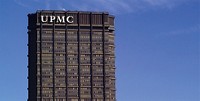Advertisement
Grab your lab coat. Let's get started
Welcome!
Welcome!
Create an account below to get 6 C&EN articles per month, receive newsletters and more - all free.
It seems this is your first time logging in online. Please enter the following information to continue.
As an ACS member you automatically get access to this site. All we need is few more details to create your reading experience.
Not you? Sign in with a different account.
Not you? Sign in with a different account.
ERROR 1
ERROR 1
ERROR 2
ERROR 2
ERROR 2
ERROR 2
ERROR 2
Password and Confirm password must match.
If you have an ACS member number, please enter it here so we can link this account to your membership. (optional)
ERROR 2
ACS values your privacy. By submitting your information, you are gaining access to C&EN and subscribing to our weekly newsletter. We use the information you provide to make your reading experience better, and we will never sell your data to third party members.
Business
Research Support: New Ventures Aim To Advance Innovation In Drug Discovery
by Rick Mullin
March 12, 2012
| A version of this story appeared in
Volume 90, Issue 11
Institutional support for drug research has advanced with the formation of a venture sponsored by Cleveland’s University Hospitals (UH) to support independent scientists and a collaboration between the Boston area’s two National Cancer Institute-designated cancer centers.
UH has launched a $250 million initiative called the Harrington Project for Discovery & Development to support drug research by independent physician-scientists. The project will be funded by UH, independent investors, and a $50 million gift from the local family for which it is named. It will include a not-for-profit clinical research group and a for-profit company that will commercialize drugs that it develops.
The Harrington Project, according to UH, is a first-of-its-kind venture to support researchers who lack access to government and investor funding or partnerships with major drug companies. “The current system nationally has been flawed, and we believe this new initiative is the solution,” says Achilles A. Demetriou, UH’s chief operating officer.
Meanwhile, in a first-time collaboration, the David H. Koch Institute for Integrative Cancer Research at Massachusetts Institute of Technology and Dana-Farber/Harvard Cancer Center have formed the Bridge Project to tackle two of the most lethal cancers: pancreatic cancer and glioblastoma, a form of brain cancer.
The Bridge Project has awarded grants to four teams made up of biologists, bioengineers, and clinical researchers representing both cancer centers. The project aims to raise $50 million over the next three to five years to fund additional research teams.



Join the conversation
Contact the reporter
Submit a Letter to the Editor for publication
Engage with us on Twitter